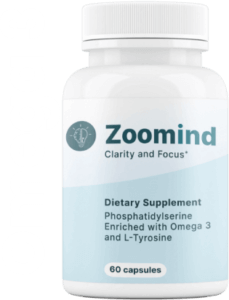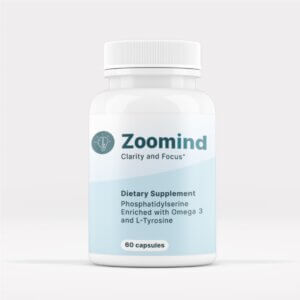
What is ADHD?
ADHD is a developmental condition that starts in childhood. Previously known as ADD, people with ADHD may struggle with focus, get easily distracted, act impulsively, or be overly active at times. These challenges can affect their school performance, relationships, work, and family life.
ADHD affects the brain’s structure and function, though its exact causes remain unclear. Research shows that ADHD tends to run in families, suggesting a genetic link. One key difference in the brains of people with ADHD is lower levels of norepinephrine, a chemical made from dopamine. Experts believe that reduced levels of both norepinephrine and dopamine play a role in ADHD symptoms. This issue can also affect the brain’s reward system, altering how people with ADHD experience rewards and pleasure.
The brain of someone with ADHD shows differences in certain areas compared to a non-ADHD brain. The frontal cortex, which helps control behavior, emotions, and attention, often works differently. Changes in the limbic system, which affects emotions and motivation, can lead to hyperactivity, inattention, and difficulty making decisions. The basal ganglia, responsible for motor learning and managing behavior, focus, and multitasking, is also impacted by ADHD, influencing these skills.
In people with ADHD, the brain’s default mode network (DMN), which becomes active during daydreaming or lack of focus, is triggered more often. This makes it harder to stay focused on tasks, especially ones that are boring or repetitive, as the mind is frequently pulled toward unrelated thoughts.
Three tried and tested natural remedies for ADHD
Omega 3 fatty acid supplementation
Fish oil supplements are often discussed when it comes to brain health, and for good reason. The brain is made up of more than 60% fats and relies on certain nutrients to stay healthy and function properly. One key group of nutrients is omega-3 fatty acids, also known as essential fatty acids (EFAs) or polyunsaturated fatty acids (PUFAs). These fatty acids play a major role in building and maintaining the brain. A lack of omega-3 fatty acids in the diet can lead to fatty acid deficiencies, which may impact brain function.
Research shows that omega-3 supplements can help reduce symptoms of ADHD, such as hyperactivity, inattention, disobedience, and even hostility. A review of 16 studies by Oregon Health & Science University found that omega-3s consistently eased hyperactivity, making them a potential addition to standard ADHD treatments like medication and therapy. Other studies back this up, including one from Australia where children who took omega-3 supplements daily for four months showed improved behavior, better memory, and even enhanced spelling skills. In Germany, researchers found that omega-3s improved working memory, which is essential for learning. Sleep problems associated with ADHD may also improve with supplements. An Israeli study gave children with ADHD either an omega-3/omega-6 supplement or a placebo for 10 weeks, and those taking the supplement slept better, felt less tired during the day, and got along better with others.

Physical activity
Exercise can affect the brain in ways similar to ADHD medication by giving it a dopamine boost. Regular exercise may not be a quick fix, but adding physical activity to a daily routine can help improve focus and mental clarity for those with ADHD. Exercise can increase motivation, improve impulse control, and reduce emotional challenges such as anxiety, confusion, and depression. Mind-body activities like yoga may also help reduce key ADHD symptoms, including difficulties with attention, impulsivity, and hyperactivity.
For children the overall amount of daily movement matters more than focusing on specific exercises. Kids aged six and older should aim for at least one hour of physical activity each day. Children can spend their 60 minutes of activity in various ways. Some options include riding a bike with family, playing sports like basketball, soccer, or tennis, and enjoying games like hide and seek with friends. They might also jump rope, play hopscotch, go hiking, or follow an exercise video. Group exercises designed for kids are another great way to stay active.
Research on regular physical activity for adults with ADHD focuses on aerobic exercises, but combining aerobic activities with resistance training can provide the best health benefits. Some great exercises for adults with ADHD include jogging, cycling, rowing, martial arts, using an elliptical, taking a spinning class, hiking, or boxing.
Sleep
People with ADHD often experience sleep problems that affect both the amount and quality of their sleep. These challenges can include difficulty falling asleep, staying asleep, or maintaining a regular sleep schedule. ADHD impacts areas of the brain that control alertness and focus, which can lead to issues like overstimulation or racing thoughts at night. This restlessness makes it hard for them to relax and fall asleep. Poor sleep, in turn, can worsen ADHD symptoms such as trouble focusing, impulsivity, and emotional struggles, creating a cycle that’s hard to break. Addressing these sleep issues can help improve focus, emotional stability, and overall well-being for those with ADHD.
Improving sleep for people with ADHD requires strategies tailored to their needs. Sticking to a consistent sleep schedule, even on weekends, can help regulate the body’s internal clock and improve sleep quality. A calming nighttime routine, like reading, taking a warm bath, or meditating, can prepare the mind for rest, while avoiding screens before bed reduces disruptive blue light exposure. Tracking sleep patterns and routines in a journal can reveal what helps or hinders rest, making it easier to adjust habits and improve sleep hygiene over time.
FAQs
How does omega-3 deficiency cause ADHD?
Omega-3 fatty acids play an important role in brain health and function, but there is no solid evidence proving that a lack of omega-3 directly causes ADHD. However, research has suggested that adults and children with ADHD may have reduced omega-3 levels in their blood. Omega-3 fatty acids, particularly DHA, play an important role in brain function. A lack of these nutrients may worsen ADHD symptoms, such as difficulty focusing or acting impulsively.
Why do we need to supplement omega-3?
The body cannot produce essential fatty acids on its own, so they must be obtained through food. These fatty acids are not easily found in the muscle tissue of land animals or in most plants but are abundant in ocean fish like salmon, mackerel, sardines, and tuna. Over the last ten thousand years, the rise of processed foods and meat-based diets has disrupted the natural intake of these nutrients, and therefore supplementation is often the most convenient way to obtain enough omega-3.
How to cure omega-3 deficiency?
To address a deficiency in omega-3 fatty acids it’s essential to include enough omega-3-rich fish in the diet. Experts recommend eating two to three servings of ocean fish per week to meet the body’s regular needs. For someone already low in omega-3s, this amount should increase to four or five servings weekly to restore proper levels. If these levels cannot be reached then a natural remedy for ADHD should be considered.








